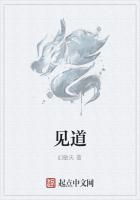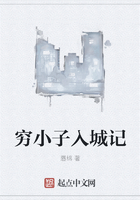Murdock,G.(2006).Cosmopolitans and conquistadors:Empires,nations and networks.In O.Boyd-Barrett(ed.),Communications media globalization and empire(17—32).Eastleigh:John Libbey.
Nennett,W.L.(1988).News:The politics of illusion.2nd Edition.New York:Longman.
Nordenstreng,K.(1999).The context:Great media debate.In Vincent,R.C.,Nordenstreng,K.and Traber,M.(eds.),Towards equity in global communication:MacBride update(235—268).Cresskill,NJ:Hampton Press.
Norris,P.(2000).A Virtuous circle:Political communications in postindustrial societies.Cambridge:Cambridge University Press.
O’Siochru,S.,Girard,W.B.,with Mahan,Amy.(2002).Global media governance:A beginner’s guide.Lanham,MD:Rowman&Littlefield.
O’Siochru,S.(2005).Global media governance as a potential site of civil society intervention.In Hackett,R.A.and Zhao,Y.(eds.),Democratizing global media:One world,many struggles(205—221).Lanham:Rowman&Littlefield.
O’Neill,M.(1998,April 3).Titanic fever sweeps Beijing.South China Morning Post.
O’Sullivan,T.,Hartley,J.,Saunders,D.and Fiske,J.(1983).Key concepts in communication.London:Methuen.
Ohmann,R.(1996).Selling culture:Magazines,markets and class at the turn of the century.London:Verso.
Ong,A.(1999).Flexible citizenship:The cultural logic of transnationality.Durham&London:Duke University Press.
Pan,Z.D.(1997,May).Spatial configuration in China’s journalism reforms.Paper presented at the International Communication Association Conference,Montreal.
Pan,Z.D.,lu,Y.(2003).Localizing professionalism:Discoursive practices in China’s media reform.In Lee,C.C.(ed.),Chinese media,global contexts(215—236),London:RoutedgeCurzon.
Panitch,L.and Gindin,S.(2004).Global capitalism and American empire.In L.Panitch and C.Leys(eds.),Socialist Register 2004:The new imperial challenge(1—42).London:The Merlin Press.
Paxman,A.and Alex M.Saragoza,A.M.(2002).Globalization and Latin Media powers:The case of Mexico’s Televisa.In Mosco,V.and Schiller,D.(eds.),Continental Order?Integrating North America for Cybercapitalism(64—85).Lanham,MD:Rowman&Littlefield.
Pearson,M.(1997).China’s new business elite:The political consequences of economic reform.Berkeley:University of California Press.
Pei,M.X.(1994).From reform to revolution:The demise of communism in China and the Soviet Union.Cambridge,Mass.:Harvard University Press.
Pendakur,M.(1991).A political economy of television:State,class and corporate confluence in India.In Sussman,G.and Lent,J.(eds.),Transnational communications:Wiring the Third World(234—262).Newbury Park,CA:Sage.
Pendakur,M.(2003).Indian popular cinema:Industry,ideology,and consciousness.Cresskill,N.J.:Hampton Press.
Perry,E.J.(1999).Crime,Corruption,and Contention.In Goldman,M.and MacFarquhar,R.(eds.),The paradox of China’s post-Mao reforms(308—329).Cambridge,Mass:Harvard University Press.
Perry,E.J.and Selden,M.(2003).Introduction:Reform and resistance in contemporary China.In Perry,E.J.and Selden,M.(eds.),Chinese society:Change,conflict and resistance(1—22),2nd edition.London and New York:Routledge Curzon.
Petras,J.and Veltmeyer,H.(2001).Globalization unmasked:Imperialism in the 21st Century.London and New York:Zed Books.
Polanyi,K.(1944).The Great transformation:The political and economic origins of our time.New York,Beacon Press.
Polumbaum,J.(1994).Striving for predictability:The bureaucratization of media management in China.In Lee,C.C.(ed.),China"s media,media’s China(113—128).Boulder,CO:Westview Press.
Polumbaum,J.(1998).Review of the book Media,Market,and Democracy in China:Between the Party Line and the Bottom Line.Journal of Communication 49(4),170—172.
Preston,W.Jr.,Herman,E.S.and Schiller,H.I.(1989).Hope and folly:The United States and Unesco,1945—1985.Minneapolis:University of Minnesota Press.
Price,M.E.,Rozumilowicz,B.and Verhulst,S.G.(2002).Media reform:Democratizing the media,democratizing the state.London and New York:Routledge.
Palat,R.A.(2008).A new bandung?Economic growth vs.distributive justice among emerging powers.Futures,40,721—734.
Qiu,J.L.C.(2009).Working class network society:Communication technology and the information have-less in urban China.Cambridge,MA:MIT Press.
Qiu,J.L.C.(2010).Class,communication,China:A thought piece.International Journal of Communication,4,531—536.
Repo,S.(1986).Journalistic objectivity,the discourse on democracy,and the birth of the popular press.Unpublished Ph.D.dissertation.University of Toronto.
Roach,C.(1997).Cultural imperialism and resistance in media theory and literary theory.Media,Culture&Society,19(1),47—66.
Roberts.A.(1993,October).All the news we can manage.New Directions.
Robinson,D.C.(1993).Taking“freedom of the press”seriously:Critical media sociology and the challenging of democracy.Alternative Routes 10,57—83.
Robison,R.,and Goodman,D.(1996).The new rich in Asia:Economic development,social status and political consciousness.In Robison,R.&Goodman,D.(eds.),The new rich in Asia:Mobile phones,McDonald"s and middle-class revolution(1—16).London and New York:Routledge.
Rorty,R.(1985).Habermas and Lyotard on postmodernity.In Bernstein,R.(ed.),Habermas and Modernity(160—75).Cambridge:Polity Press.
Rosen,S.(2000).Seeking appropriate behavior under a socialist market economy:An analysis of the Beijing Youth Daily.In Lee,C.C.(ed.),Power,money,and media:Communication patterns and bureaucratic control in cultural China(45—67).Evanston,Ill.:Northwestern University Press.















